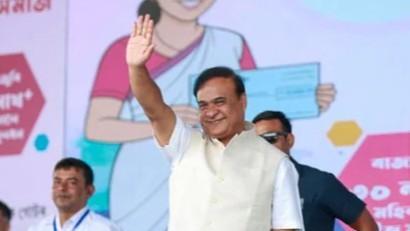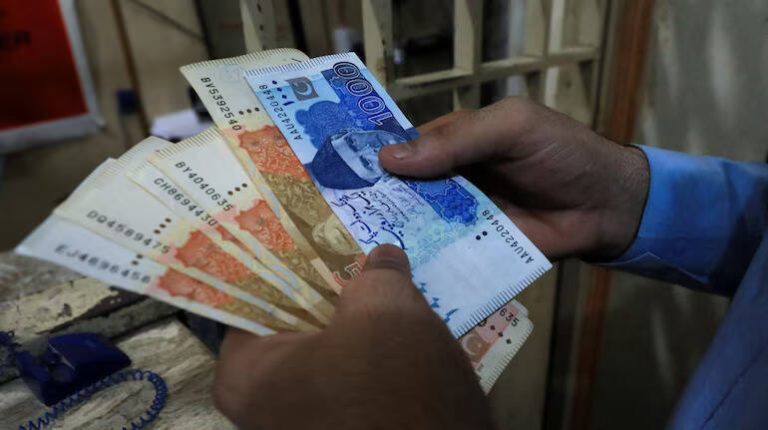
Assam CM helped Nitish work out ₹10,000 for women scheme: Report
In a recent development, it has been reported that a significant portion of the credit for Bihar’s scheme to provide ₹10,000 to women goes to Assam Chief Minister Himanta Biswa Sarma. According to NDA leaders, Sarma played a crucial role in helping Nitish Kumar’s government devise the plan, which has been incorporated into the all-new Mukhyamantri Mahila Rojgar Yojana.
The story behind this collaboration is an interesting one. It is said that five months ago, Sarma sent a team of bureaucrats to Bihar at the request of the Nitish Kumar government. The team made a presentation before officials on the ‘Jeevika ₹10,000 model’, which was later adopted and incorporated into the Mukhyamantri Mahila Rojgar Yojana. This scheme aims to provide financial assistance to women in the state, with the goal of empowering them and promoting economic independence.
The Jeevika ₹10,000 model, which was developed in Assam, has been successful in providing financial support to women in the state. The model involves providing ₹10,000 to women’s self-help groups, which can be used to start small businesses or invest in income-generating activities. The scheme has been hailed as a success, with many women benefiting from the financial assistance and becoming economically independent.
It is worth noting that the Mukhyamantri Mahila Rojgar Yojana is a similar scheme, which aims to provide financial assistance to women in Bihar. The scheme involves providing ₹10,000 to women, which can be used to start small businesses or invest in income-generating activities. The scheme is expected to benefit thousands of women in the state, and is seen as a major step towards promoting women’s empowerment and economic independence.
The collaboration between the Assam and Bihar governments is a significant development, and highlights the importance of cooperation between states in promoting economic development and social welfare. It is a testament to the fact that states can learn from each other’s experiences and successes, and can work together to promote the welfare of their citizens.
The role of Himanta Biswa Sarma in helping Nitish Kumar’s government devise the plan is also significant. As the Chief Minister of Assam, Sarma has been instrumental in promoting economic development and social welfare in the state. His experience and expertise in this area have been invaluable, and have helped to inform the development of the Mukhyamantri Mahila Rojgar Yojana.
The success of the Jeevika ₹10,000 model in Assam is also a significant factor in the development of the Mukhyamantri Mahila Rojgar Yojana. The model has been successful in providing financial support to women in Assam, and has helped to promote economic independence and empowerment. The adoption of this model in Bihar is expected to have similar results, and is seen as a major step towards promoting women’s empowerment and economic development in the state.
In conclusion, the report that Assam CM Himanta Biswa Sarma helped Nitish work out the ₹10,000 for women scheme is a significant development. The collaboration between the Assam and Bihar governments highlights the importance of cooperation between states in promoting economic development and social welfare. The success of the Jeevika ₹10,000 model in Assam is also a significant factor in the development of the Mukhyamantri Mahila Rojgar Yojana, and is expected to have similar results in Bihar.
The Mukhyamantri Mahila Rojgar Yojana is a major step towards promoting women’s empowerment and economic independence in Bihar. The scheme is expected to benefit thousands of women in the state, and is seen as a significant development in the state’s efforts to promote economic development and social welfare. The role of Himanta Biswa Sarma in helping Nitish Kumar’s government devise the plan is also significant, and highlights the importance of cooperation and collaboration between states in promoting economic development and social welfare.
The scheme is also expected to have a positive impact on the state’s economy, as it is expected to promote entrepreneurship and job creation. The provision of financial assistance to women is expected to help them start small businesses, which will create jobs and stimulate economic growth. The scheme is also expected to help reduce poverty and inequality, as it will provide financial support to women who are most in need.
In addition, the scheme is also expected to have a positive impact on the state’s social welfare. The provision of financial assistance to women is expected to help promote women’s empowerment and economic independence, which will have a positive impact on the state’s social welfare. The scheme is also expected to help reduce gender inequality, as it will provide financial support to women who are most in need.
Overall, the report that Assam CM Himanta Biswa Sarma helped Nitish work out the ₹10,000 for women scheme is a significant development. The collaboration between the Assam and Bihar governments highlights the importance of cooperation between states in promoting economic development and social welfare. The success of the Jeevika ₹10,000 model in Assam is also a significant factor in the development of the Mukhyamantri Mahila Rojgar Yojana, and is expected to have similar results in Bihar.
News Source: https://indianexpress.com/article/political-pulse/assam-cm-sarma-nitish-kumar-govt-rs-10000-scheme-10375526/lite/






